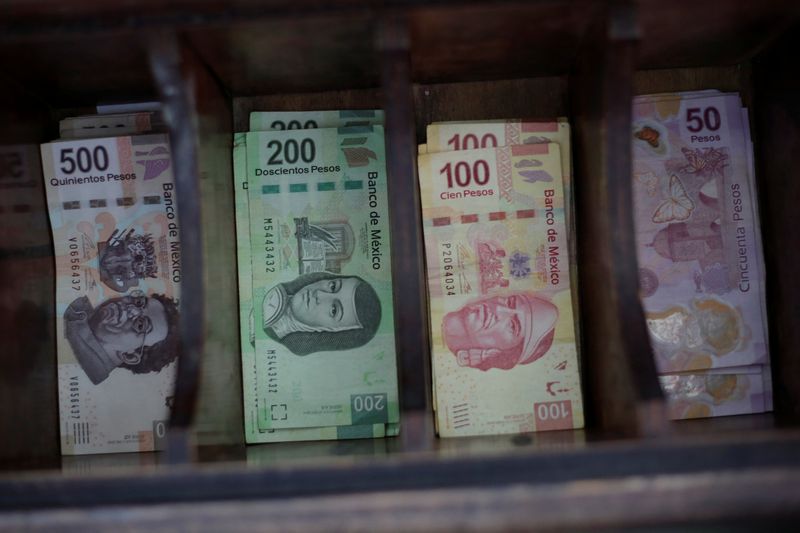Karin Strohecker
LONDON (Reuters) – The Mexican peso fell nearly 3% against the dollar on Monday after Claudia Sheinbaum won a landslide victory in the presidential election and the ruling coalition looked poised for a supermajority that markets fear could lead to constitutional changes.
The peso hit a new five-week low of 17.5020 per dollar, its worst fall since September 2020, according to LSEG data.
The latest losses mean the currency has weakened 2.4% year to date, a sharp turnaround for a currency that until recently was one of the few emerging market currencies to strengthen against the strong dollar.
“The question in Mexico is whether Morena’s party has done so well that it could win a supermajority and try to push through market-unfriendly constitutional reform policies,” said Chris Turner, ING’s global head of markets.
Sheinbaum, a climate scientist and former mayor of Mexico City, won the presidency with 58.3% to 60.7% of the vote, according to a quick sample count conducted by the election authority, considered the highest percentage of the vote in democratic Mexico. story.
Her victory was widely expected, but the scale of Morena’s achievements and the prospect of the ruling coalition potentially winning an overwhelming majority caught markets by surprise.
Obtaining a two-thirds supermajority in both houses of Congress would allow the group to pass constitutional reforms without opposition support.
“This would allow Sheinbaum and Morena to push through constitutional amendments, including those proposed by President Lopez Obrador before the election,” said Jason Toovey, deputy chief economist for emerging markets at Capital Economics.

López Obrador has doubled the minimum wage, reduced poverty and overseen a strong peso and low unemployment – successes that have made him incredibly popular.
Sheinbaum has promised to expand the welfare policies that fueled his popularity and her triumph, but it will not be an easy task as she inherits huge budget deficits and low economic growth.


